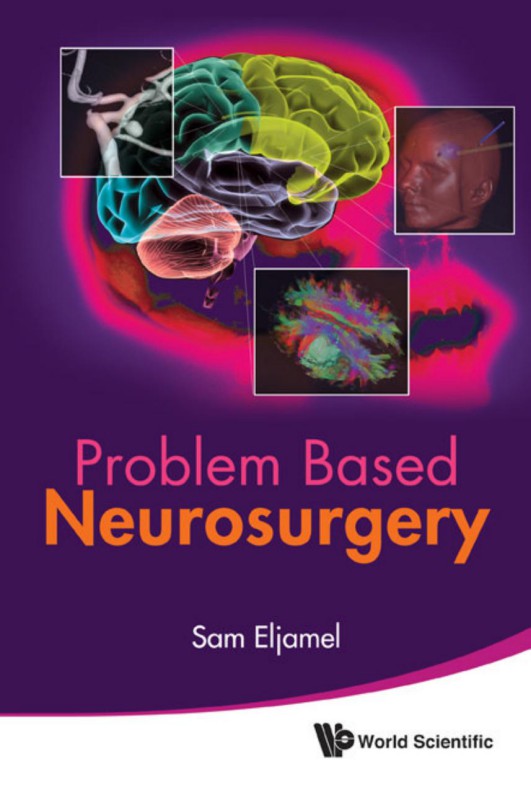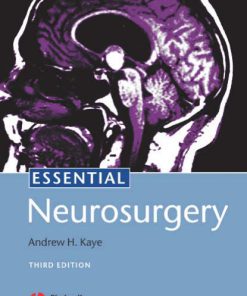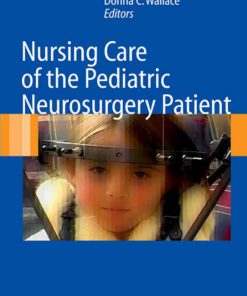Problem Based Neurosurgery 1st edition by Sam Eljamel ISBN ‎ 9814317071 978-9814317078
$50.00 Original price was: $50.00.$25.00Current price is: $25.00.
Authors:Eljamel, Sam. , Tags:World Scientific Publishing Co.; ISBN-13 9789814317078 , Author sort:Eljamel, Sam.
Problem Based Neurosurgery 1st edition by Sam Eljamel – Ebook PDF Instant Download/Delivery. 9814317071 978-9814317078
Full download Problem Based Neurosurgery 1st edition after payment

Product details:
ISBN 10: 9814317071
ISBN 13: 978-9814317078
Author: Sam Eljamel
Problem Based Neurosurgery is a remarkable fusion of recent advances in neuro-imaging and neurosurgery with modern teaching of integrated system based curricula. It approaches each problem systematically from history, and physical examination to differential diagnosis, investigations and management options. The book captures four decades of advances and experiences in diagnosis and management of patients. The problems upon which the book is based are real patients and cover all aspects of neurosurgical practice with up to date modern images. The blend of new scientific discoveries, modern imaging and the art of smart history and physical examinations underpins the book to improve diagnosis, investigation and the care of neurosurgical patients.The main thrust of this book is that it is based on clinical problems faced by fellows, residents and students, rather than traditional topic based. Problem based learning and management is the modern method of teaching in the new curriculum of teaching neurosurgery. It is a practical handbook that will help students, residents and community doctors alike. There is no similar book on
Problem Based Neurosurgery 1st Table of contents:
-
Introduction to Problem-Based Learning (PBL) in Neurosurgery
- Overview of problem-based learning methodology
- How to approach clinical problems in neurosurgery
- Objectives of the book and its application in neurosurgical education
- Basic principles of neurosurgery (e.g., sterile technique, patient positioning)
-
Neuroanatomy and Neurosurgical Techniques
- Key neuroanatomical structures relevant to surgery
- Neuroimaging basics and interpretation (CT, MRI, angiography)
- Surgical approaches and techniques (e.g., craniotomy, microsurgery)
- Patient safety and intraoperative monitoring
-
Trauma and Emergency Neurosurgery
- Traumatic brain injury (TBI) management
- Spinal cord injury and spinal trauma
- Hemorrhage (epidural, subdural, subarachnoid)
- Acute management of cranial and spinal trauma
- Neurocritical care in trauma patients
-
Neurosurgical Oncology
- Primary brain tumors (e.g., gliomas, meningiomas)
- Metastatic brain tumors
- Surgical techniques for tumor resection
- Preoperative imaging and planning
- Postoperative management and recurrence monitoring
-
Vascular Neurosurgery
- Cerebrovascular accidents (stroke, transient ischemic attacks)
- Intracranial aneurysms and arteriovenous malformations (AVMs)
- Management of subarachnoid hemorrhage
- Endovascular approaches vs. open surgery in cerebrovascular disease
- Carotid artery disease and treatment options
-
Spinal Disorders
- Degenerative spine disease (e.g., herniated discs, stenosis)
- Spinal deformities (e.g., scoliosis, kyphosis)
- Spinal tumors and metastasis
- Spinal infections and abscesses
- Surgical options for spinal stabilization and decompression
-
Functional Neurosurgery
- Deep brain stimulation for movement disorders (e.g., Parkinson’s disease)
- Epilepsy surgery and resective techniques
- Pain management and neuromodulation (e.g., spinal cord stimulation)
- Stereotactic surgery and its indications
-
Pediatric Neurosurgery
- Pediatric brain tumors (e.g., medulloblastomas, gliomas)
- Hydrocephalus and shunt surgery
- Pediatric spinal conditions (e.g., spina bifida, tethered cord)
- Congenital anomalies (e.g., craniosynostosis, encephalocele)
- Pediatric neurocritical care
-
Peripheral Nerve Surgery
- Nerve injuries and repair techniques (e.g., brachial plexus injuries)
- Carpal tunnel syndrome and other compressive neuropathies
- Nerve grafting and reconstruction
- Management of painful peripheral neuropathies
-
Neurosurgical Infections
- Meningitis and brain abscess management
- Spinal infections and epidural abscesses
- Neurosurgical considerations in sepsis
- Post-surgical infection prevention
-
Neurocritical Care and Postoperative Management
- Postoperative monitoring in neurosurgery
- Management of intracranial pressure (ICP)
- Management of seizures and other postoperative complications
- Neurocritical care unit protocols
-
Case-Based Clinical Scenarios
- Problem-solving in neurosurgery with a case-based approach
- Multiple real-life clinical cases demonstrating neurosurgical decision-making
- Diagnostic challenges and treatment planning
- Postoperative care and complications management
-
Ethics and Patient Communication in Neurosurgery
- Ethical considerations in neurosurgical decision-making
- Informed consent in neurosurgery
- Communicating with patients and families about prognosis, surgery, and outcomes
- End-of-life care and decision-making in neurosurgical patients
-
Emerging Trends and Future Directions in Neurosurgery
- Advances in minimally invasive neurosurgery
- Robotics and artificial intelligence in neurosurgery
- Innovations in neuroimaging and surgical planning
- Regenerative medicine and stem cell research in neurosurgery
Features of the Book:
- Problem-Based Approach: Each chapter might include case studies or clinical problems, with detailed solutions and discussions on diagnostic strategies and management.
- Clinical Problem Solving: Emphasis on decision-making, including step-by-step approaches to common and complex neurosurgical conditions.
- Illustrations and Imaging: Diagrams, radiographs, and other imaging techniques used in the diagnosis and treatment of neurosurgical conditions.
- Practice Questions: Each chapter may end with questions to test the reader’s understanding and clinical reasoning.
People also search for Problem Based Neurosurgery 1st:
campbell’s operative orthopaedics
Campbell’s core orthopaedic procedures
campbell’s operative orthopedics
campbell’s orthopedics
campbell procedure knee
You may also like…
eBook PDF
Apoptosis a practical approach 1st Edition by GP Studzinski, BD Hames ISBN 9780191566004 0191566004












